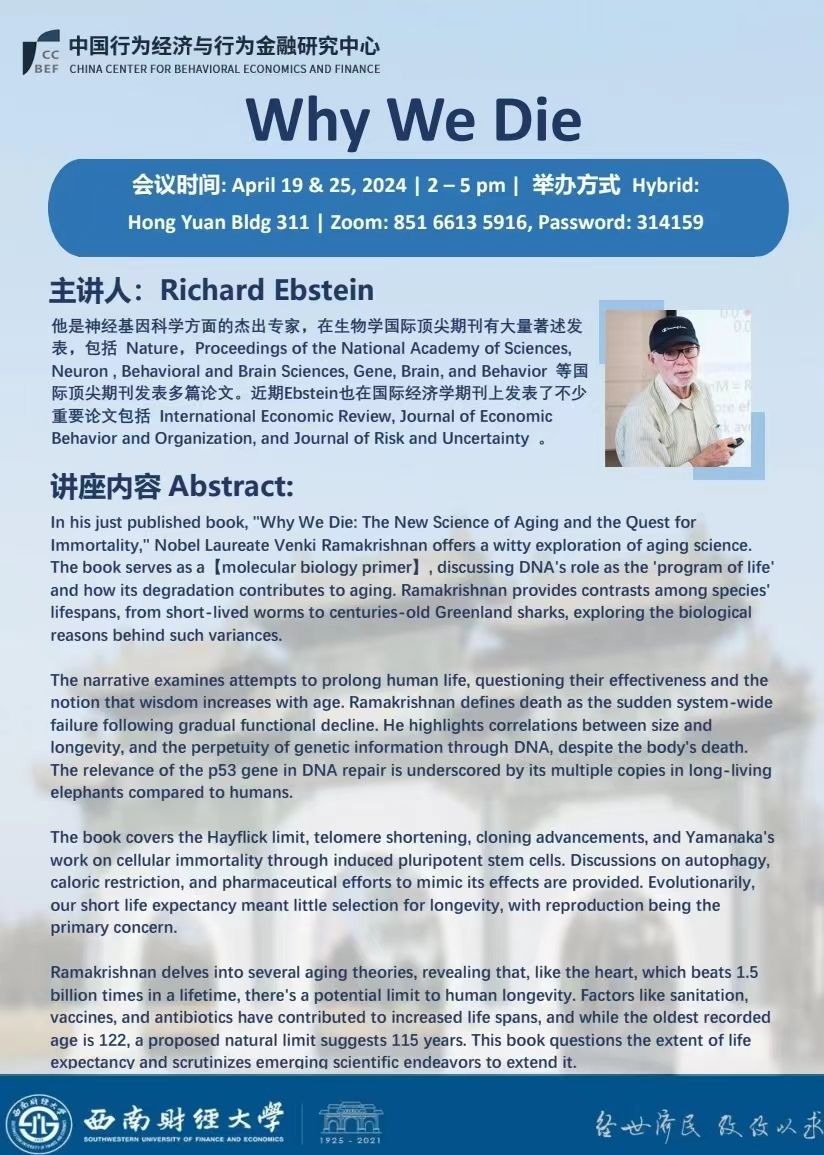主讲人:Richard Ebstein
题目:Why We Die
时间:2024年4月19日&4月25日,下午2:00-5:00
线下地点:弘远楼311室
线上链接:Zoom Meeting ID: 851 6613 5916, Passcode: 314159
主要内容:
In his just published book, "Why We Die: The New Science of Aging and the Quest for Immortality," Nobel Laureate Venki Ramakrishnan offers a witty exploration of aging science. The book serves as a【molecular biology primer】, discussing DNA's role as the 'program of life' and how its degradation contributes to aging. Ramakrishnan provides contrasts among species' lifespans, from short-lived worms to centuries-old Greenland sharks, exploring the biological reasons behind such variances.
The narrative examines attempts to prolong human life, questioning their effectiveness and the notion that wisdom increases with age. Ramakrishnan defines death as the sudden system-wide failure following gradual functional decline. He highlights correlations between size and longevity, and the perpetuity of genetic information through DNA, despite the body's death. The relevance of the p53 gene in DNA repair is underscored by its multiple copies in long-living elephants compared to humans.
The book covers the Hayflick limit, telomere shortening, cloning advancements, and Yamanaka's work on cellular immortality through induced pluripotent stem cells. Discussions on autophagy, caloric restriction, and pharmaceutical efforts to mimic its effects are provided. Evolutionarily, our short life expectancy meant little selection for longevity, with reproduction being the primary concern.
Ramakrishnan delves into several aging theories, revealing that, like the heart, which beats 1.5 billion times in a lifetime, there's a potential limit to human longevity. Factors like sanitation, vaccines, and antibiotics have contributed to increased life spans, and while the oldest recorded age is 122, a proposed natural limit suggests 115 years. This book questions the extent of life expectancy and scrutinizes emerging scientific endeavors to extend it.

